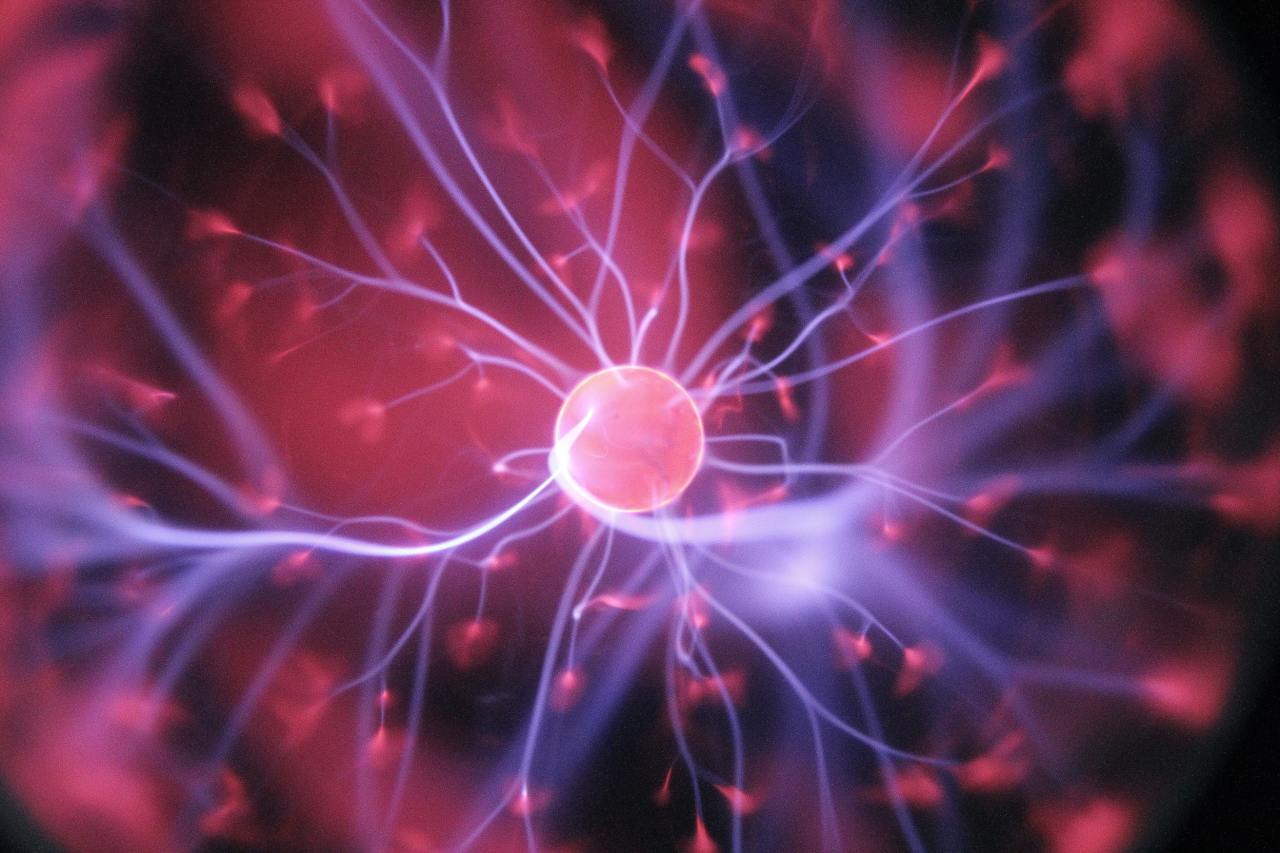
220+ Science Trivia Questions and Answers
Okay, Einstein, are you ready to test your science knowledge? Put on your thinking cap and transport your brain to those beloved science fairs. Just picture space dioramas, model volcanos, and microorganisms in petri dishes. Good luck and go for that 1st place ribbon with these science trivia questions.
Science Trivia Questions
Trivia Question: What element did Joseph Priestley discover in 1774?
Answer: Oxygen
Trivia Question: What inorganic molecule is produced by lightning?
Answer: Ozone
Trivia Question: Bronze is an alloy consisting primarily of what two elements?
Answer: Copper and Tin
Trivia Question: What is the nearest planet to the sun?
Answer: Mercury
Trivia Question: The earth has three layers that are different due to varying temperatures. What are its three layers?
Answer: Crust, mantle, and core
Trivia Question: What is the largest known land animal?
Answer: Elephant
Trivia Question: Which of Newton’s Laws states that ‘for every action, there is an equal and opposite reaction?’
Answer: The third law of motion
Trivia Question: How many elements are there in the periodic table?
Answer: 118
Trivia Question: What is the tallest type of grass?
Answer: Bamboo
Trivia Question: How many bones do sharks have?
Answer: Zero
Trivia Question: Diabetes develops as the result of a problem with which specific organ in the body?
Answer: Pancreas
Trivia Question: What is the rarest blood type?
Answer: AB-
Trivia Question: What is it called when you make light change direction by passing it through a lens?
Answer: Refraction
Trivia Question: What type of bond involves the sharing of electron pairs between different atoms?
Answer: Covalent
Trivia Question: Where is the world’s most active volcano located?
Answer: Hawaii
Trivia Question: What disease stems from the medieval term that means ‘bad air’?
Answer: Malaria
Trivia Question: Optics is the study of what?
Answer: Light
Trivia Question: What part of the brain deals with hearing and language?
Answer: Temporal lobe
Trivia Question: Dolly was the first-ever living creature to be cloned. What type of animal was she?
Answer: Sheep
Trivia Question: Animals that eat both plants and meat are called what?
Answer: Omnivores
Trivia Question: What is the quality of an object that allows it to float on water?
Answer: Buoyancy
Trivia Question: What is the largest internal organ of the human body?
Answer: Liver
Trivia Question: Oncology focuses on what disease?
Answer: Cancer
Trivia Question: Which two elements on the periodic table are liquids at room temperature?
Answer: Mercury and Bromine
Trivia Question: What planet in our solar system has the most gravity?
Answer: Jupiter
Trivia Question: Penicillin is used to fight what type of infections?
Answer: Bacterial
Trivia Question: What is the medical term for bad breath?
Answer: Halitosis
Trivia Question: The study of the weather is called what?
Answer: Meteorology
Trivia Question: What is a Geiger Counter used to measure?
Answer: Radiation
Trivia Question: What type of cell division results in two four daughter cells, each with half the number of chromosomes in the parent cells?
Answer: Meiosis
Trivia Question: What is the symbol of the element silver?
Answer: Ag
Trivia Question: What does ‘E’ represent in E=MC2?
Answer: Energy
Trivia Question: According to Apollo astronauts, the Moon smells like what?
Answer: Burnt gunpowder
Trivia Question: Frogs belong to which animal group?
Answer: Amphibians
Trivia Question: Which component of an atom might you expect to be orbiting around it?
Answer: Electrons
Trivia Question: Mycology is the scientific study of what?
Answer: Fungi
Trivia Question: What is the name of the red pigment found in vertebrates that functions in oxygen transport?
Answer: Hemoglobin
Trivia Question: What is the electrical charge of a neutron?
Answer: No charge
Trivia Question: What kind of energy does an unlit match have?
Answer: Chemical energy
Trivia Question: How do you calculate density?
Answer: Density is mass divided by volume
Trivia Question: What is it called when an individual doesn’t offer to help someone in an emergency if there are other people present?
Answer: Bystander effect
Trivia Question: Which psychological concept did Pavlov’s dog help him describe?
Answer: Conditioning
Trivia Question: In terms of pH, what is ammonia?
Answer: Basic
Trivia Question: About how old is Earth?
Answer: 4.5 billion years
Trivia Question: What is the name of the most recent supercontinent?
Answer: Pangea
Trivia Question: What is the scientific term for peeling skin?
Answer: Desquamation
Trivia Question: Which moon of Saturn has a methane cycle?
Answer: Titan
Trivia Question: Around what percentage of animal species are invertebrates?
Answer: 95%
Trivia Question: What animal is the closest living relative of a human?
Answer: Chimps and bonobos
Trivia Question: What is the “powerhouse of the cell?”
Answer: Mitochondria
Trivia Question: What is the sun mostly made up of?
Answer: Hydrogen
Trivia Question: The smallest bones in the body are located where?
Answer: The ear
Trivia Question: What is the scientific name for the job or role an organism plays in its habitat?
Answer: Niche
Trivia Question: The process of weathered material moving due to gravity is called what?
Answer: Erosion
Trivia Question: What is the fin on the backs of fish, some whales, and dolphins called?
Answer: Dorsal Fin
Trivia Question: What is a scientist who specializes in the study of cells called?
Answer: Cytologist
Trivia Question: What part of the brain controls hunger?
Answer: Hypothalamus
Trivia Question: What flap on your windpipe helps keep out food particles?
Answer: Epiglottis
Trivia Question: What causes the moon to shine?
Answer: Reflection from the sunlight
Trivia Question: What does the ER of a cell stand for?
Answer: Endoplasmic Reticulum
Trivia Question: What is the main structural molecule in hair and nails?
Answer: Keratin
Trivia Question: What is a unit that measures force?
Answer: Newtons
Trivia Question: What are the gaps between nerve cells called?
Answer: Synapses
Trivia Question: What is the galaxy closest in light-years to the Milky Way Galaxy?
Answer: Andromeda
Trivia Question: Which constellation are the stars Castor and Pollux in?
Answer: Gemini
Trivia Question: What element is a diamond composed of?
Answer: Carbon
Trivia Question: What was the first planet discovered with the aid of a telescope?
Answer: Uranus
Trivia Question: What does a conchologist collect?
Answer: Seashells
Trivia Question: What is the splitting of atomic nuclei called?
Answer: Nuclear Fission
Trivia Question: What is the sticky part of the pistil called?
Answer: Stigma
Trivia Question: What instrument do you use to measure wind speed?
Answer: Anemometer
Trivia Question: What do you count on a tree to tell how old it is?
Answer: It’s rings
Trivia Question: Botulinum toxin is commonly referred to as what?
Answer: Botox
Trivia Question: What does the gall bladder secrete?
Answer: Bile
Trivia Question: What is made by white blood cells to help fight off infection?
Answer: Antibodies
Trivia Question: Which person is known for publishing “The Interpretation of Dreams”?
Answer: Sigmund Freud
Trivia Question: How many chambers make up the human heart?
Answer: Four
Trivia Question: The first vaccine was for which disease?
Answer: Smallpox
Trivia Question: Who was the first woman in space?
Answer: Valentina Tereshkova
Trivia Question: What is the calm center part of a hurricane called?
Answer: Eye
Trivia Question: What layer of the Earth is right below the crust?
Answer: Mantle
Trivia Question: What is the first phase of mitosis?
Answer: Interphase
Trivia Question: What are the lower chambers of the human heart called?
Answer: Ventricles
Trivia Question: Who begins food chains?
Answer: Producers
Trivia Question: What part of the brain is responsible for vision?
Answer: Occipital
Trivia Question: What is the chemical symbol for lead?
Answer: Pb
Trivia Question: Who is considered the “father” of organic chemistry?
Answer: Friedrich Wöhler
Trivia Question: What scientist proposed the theory of continental drift?
Answer: Alfred Wegener
Trivia Question: What is the study of plant life called?
Answer: Botany
Trivia Question: What color catches the eye first?
Answer: Yellow
Trivia Question: Specialized cells are called photoreceptors. What are the 2 types of photoreceptors in the retina called?
Answer: Rods and cones
Trivia Question: A unit of electromotive force is called what?
Answer: Volt
Trivia Question: What gas makes up most of the atmosphere of Mars?
Answer: Carbon Dioxide
Trivia Question: To any astronaut, what is an EVA?
Answer: Extravehicular activity
Trivia Question: Between which two planets does the asteroid belt lie?
Answer: Jupiter and Mars
Trivia Question: What is the process of breaking down food called?
Answer: Digestion
Trivia Question: How many bones are in a giraffe’s neck?
Answer: Seven
Trivia Question: What ongoing process allows water to be constantly recycled?
Answer: Water Cycle
Trivia Question: What is the average life cycle of a red blood cell?
Answer: 120 days
Trivia Question: What was the first sound-recording device called?
Answer: Phonograph
Trivia Question: What is the scientific word for push or pull?
Answer: Force
Trivia Question: What is the only bone in the human body that isn’t attached to another bone?
Answer: Hyoid bone
Trivia Question: Who first proposed the concept of contact lenses?
Answer: Leonardo da Vinci
Trivia Question: What are the four states of matter?
Answer: Solid, liquid, gas, plasma
Trivia Question: The metamorphism of what rock forms marble?
Answer: Limestone
Trivia Question: Aspirin comes from the bark of what tree?
Answer: Willow
Trivia Question: What is the smallest organ in the human body?
Answer: Pineal gland
Trivia Question: What are the four primary precious metals?
Answer: Gold, silver, platinum, and palladium
Trivia Question: What is the only planet in our solar system less dense than water?
Answer: Saturn
Trivia Question: The Arrector Pili muscles are responsible for what phenomenon?
Answer: Goosebumps
Trivia Question: What is the smallest named time interval?
Answer: Planck time
Trivia Question: What reaction releases energy into its surroundings?
Answer: Exothermic reaction
Trivia Question: What gives onions their distinctive smell?
Answer: Sulfer
Trivia Question: What element is named after the Greek word for green?
Answer: Chlorine
Trivia Question: How many vertebrae in the human spine?
Answer: 33
Trivia Question: How long is an eon?
Answer: A billion years
Trivia Question: What is the name of the process where plants lose water in the atmosphere?
Answer: Transpiration
Trivia Question: What part of the human body is the axilla?
Answer: The armpit
Trivia Question: What is the second most abundant mineral in the human body?
Answer: Phosphorus
Trivia Question: Where on the human body are the most sweat glands?
Answer: Bottom of the feet
Trivia Question: What metal is the best conductor of electricity?
Answer: Silver
Trivia Question: What does the human lacrimal gland produce?
Answer: Tears
Trivia Question: What are the four types of adult human teeth?
Answer: Incisors, canines, premolars, molars
Trivia Question: What color has the longest wavelength in the visible spectrum?
Answer: Red
Trivia Question: Syncope is the medical name for what condition?
Answer: Fainting
Trivia Question: What number on the Richter scale does an earthquake have to reach to be considered major?
Answer: 7
Trivia Question: What scale is used to measure the hardness of minerals?
Answer: Mohs scale
Trivia Question: What is the largest nerve in the human body?
Answer: Sciatic
Trivia Question: The small intestine is made up of jejunum, ileum, and what?
Answer: Duodenum
Trivia Question: What condition is singultus?
Answer: Hiccups
Trivia Question: What sense is most closely linked to memory?
Answer: Smell
Trivia Question: NaCI is the chemical formula of which common substance?
Answer: Salt
Trivia Question: What is the fourth planet from the sun?
Answer: Mars
Trivia Question: What is the fattiest human organ?
Answer: Brain
Trivia Question: Who formulated the theory of evolution in his book, The Origin of Species?
Answer: Charles Darwin
Trivia Question: Brass is an alloy of which two metals?
Answer: Copper and zinc
Trivia Question: In which part of the body are the ossicles found?
Answer: The ear
Trivia Question: What is the center of an atom called?
Answer: The nucleus
Trivia Question: A nuclear reaction where the nucleus of an atom splits into smaller parts is known as what?
Answer: Nuclear fission
Trivia Question: Atoms of the same chemical element but with different atomic masses are known as what?
Answer: Isotopes
Trivia Question: What is the name of the biggest part of the human brain?
Answer: The cerebrum
Trivia Question: Ganymede is a moon of which planet?
Answer: Jupiter
Trivia Question: What are the muscles found in the front of the thighs are known as?
Answer: Quadriceps
Trivia Question: The innermost part of bones contains what?
Answer: Bone marrow
Trivia Question: What is the name of NASA’s most famous space telescope?
Answer: Hubble Space Telescope
Trivia Question: What is the shape of DNA known as?
Answer: A double helix
Trivia Question: What is the long pipe’s name that moves food from the back of the throat down to the stomach?
Answer: The esophagus
Trivia Question: What planet is famous for its big red spot on it?
Answer: Jupiter
Trivia Question: What is the sun?
Answer: A star
Trivia Question: Who was the first person to walk on the moon?
Answer: Neil Armstrong
Trivia Question: Olympus Mons is a large volcanic mountain on which planet?
Answer: Mars
Trivia Question: What planet is closest in size to Earth?
Answer: Venus
Trivia Question: A single piece of coiled DNA is known as what?
Answer: Chromosome
Trivia Question: Electric power is typically measured in what units?
Answer: Watts
Trivia Question: What is the seventh planet from the Sun?
Answer: Uranus
Trivia Question: The process of pasteurization is named after which French microbiologist?
Answer: Louis Pasteur
Trivia Question: Electric current is measured using what device?
Answer: Ammeter
Trivia Question: The wire inside an electric bulb is known as what?
Answer: Filament
Trivia Question: A magnifying glass is what type of lens?
Answer: Convex
Trivia Question: Electric resistance is typically measured in what units?
Answer: Ohms
Trivia Question: The most recognized model of how the universe began is known as the?
Answer: Big Bang
Trivia Question: What is the earth’s primary source of energy?
Answer: The sun
Trivia Question: Water is made up of what two elements?
Answer: Hydrogen and oxygen
Trivia Question: The deepest point in all of the world’s oceans is named what?
Answer: Mariana Trench
Trivia Question: In terms of computing, what does CPU stand for?
Answer: Central Processing Unit
Trivia Question: Along with whom did Bill Gates found Microsoft?
Answer: Paul Allen
Trivia Question: What do you call molten rock before it has erupted?
Answer: Magma
Trivia Question: What are the three-time periods of the dinosaurs?
Answer: Triassic, Jurassic, and Cretaceous
Trivia Question: Someone who studies earthquakes is known as what?
Answer: Seismologist
Trivia Question: What country experiences the most tornadoes?
Answer: United States
Trivia Question: What is the name of a weather instrument used to measure atmospheric pressure?
Answer: A barometer
Trivia Question: The Japanese word “sakura” means the blossoming of what kind of tree?
Answer: Cherry tree
Trivia Question: The movement of pollen from the anthers to a flower’s stigma is known as what?
Answer: Pollination
Trivia Question: What is the name of the world’s largest reef?
Answer: Great Barrier Reef
Trivia Question: What islands were extensively studied by Charles Darwin?
Answer: Galapagos Islands
Trivia Question: The Ayers Rock in Australia is also known as what?
Answer: Uluru
Trivia Question: What is the chemical symbol of gold?
Answer: Au
Trivia Question: What is the freezing temperature of water?
Answer: 32 degrees Fahrenheit (0 degrees Celsius)
Trivia Question: Substances that don’t conduct heat are known as what?
Answer: Insulators
Trivia Question: At what temperature is Fahrenheit equal to Centigrade?
Answer: -40 degrees
Trivia Question: In terms of engineering software, what does CAD stand for?
Answer: Computer-Aided Design
Trivia Question: Apatosaurus is also widely known by what other name?
Answer: Brontosaurus
Trivia Question: A person who studies fossils and prehistoric life, such as dinosaurs, is known as what?
Answer: Paleontologist
Trivia Question: What is another name for a tidal wave?
Answer: Tsunami
Trivia Question: When a gas changes into a liquid, it is called what?
Answer: Condensation
Trivia Question: What is it called when a solid changes directly into a gas?
Answer: Sublimation
Trivia Question: What does “SPF” mean in sunscreen?
Answer: Sun Protection Factor
Trivia Question: What gas is essential in the production of fertilizers and light bulbs?
Answer: Nitrogen
Trivia Question: What part of the body are low-density lipoproteins most likely to clog?
Answer: Arteries
Trivia Question: What instrument is used for accurately measuring small amounts of liquid?
Answer: Pipette
Trivia Question: What’s the study of materials at very low temperatures?
Answer: Cryogenics
Trivia Question: What planet is circled by two moons?
Answer: Mars
Trivia Question: The study of human remains is called what?
Answer: Archaeology
Trivia Question: The chemistry of carbon is known as what?
Answer: Organic chemistry
Trivia Question: What does the term ‘PCR’ stand for?
Answer: Polymerase chain reaction
Trivia Question: Mechanical engineer Wilhelm Conrad Roentgen was from what country?
Answer: Germany
Trivia Question: Who split the atom?
Answer: Ernest Rutherford
Trivia Question: What is the chemical structure of magnesium sulfate?
Answer: MgSO4
Trivia Question: How many cervical vertebrae are there in the typical human body?
Answer: Seven
Trivia Question: What does ‘NMR’ stand for?
Answer: Nuclear Magnetic Resonance
Trivia Question: What is the world’s largest Hydroelectric Power Plant?
Answer: Three Gorges Dam
Trivia Question: Who invented the microscope?
Answer: Zacharias Janssen
Trivia Question: Who is the father of modern taxonomy?
Answer: Carolus Linnaeus
Trivia Question: What is the study of the interaction or relationship of living organisms to one another?
Answer: Ecology
Trivia Question: What gas makes soda bubbly?
Answer: Carbon Dioxide
Trivia Question: What enzyme in the human mouth helps digest carbohydrates?
Answer: Salivary Amylase
Trivia Question: What is the formal name for climate studies?
Answer: Climatology
Trivia Question: Which form of energy can we see with the naked eye?
Answer: Light
Trivia Question: What does Earth do that causes night and day?
Answer: Rotates
Trivia Question: What are the chewing teeth called?
Answer: Incisors
Trivia Question: Who was the inventor of the first battery?
Answer: Alessandro Volta
Trivia Question: What is the distance between the moon and earth?
Answer: 238,900 miles
Trivia Question: What is so reactive with water that it has to be stored in oil because it will react with the air’s moisture?
Answer: Potassium
Trivia Question: What type of bond is present in a water molecule?
Answer: Hydrogen Bond
Trivia Question: What is the shape of the Milky Way?
Answer: Spiral
Trivia Question: What is the strongest magnet in the universe?
Answer: Magnetars
Trivia Question: What is the programmed death cell process called?
Answer: Apoptosis
Trivia Question: Who was the first man to see bacteria?
Answer: Antony Leeuwenhoek
Trivia Question: Where is the Olympus mons present?
Answer: Mars
Trivia Question: What is another name for the SA node in the heart?
Answer: Pacemaker
Trivia Question: What is the inflammation of the liver called?
Answer: Hepatitis
Trivia Question: What procedure known for sound navigation?
Answer: Sonar
Trivia Question: What is the most malleable metal?
Answer: Gold
More Quizzes:
Don’t worry! There are plenty of more quizzes you can take if you want to test your knowledge in different areas. If you’re having a good time answering questions, here are some more fun quizzes about random topics, from anime to Disney to geography. See how many questions you can answer correctly, then challenge your family and friends to do the same!
-
21 Hidden Details In ‘Scream VI’ That You’ll Only Catch On A Second Viewing
-
90+ Comic Book Trivia Questions For Superfans
-
90+ Ancient History Trivia Questions And Answers
-
50+ Hunger Games Trivia Questions For Fans
-
70 Fun, Mind-Blowing Dinosaur Trivia Questions
-
80+ Sitcom Trivia Questions For Comedy Fans
-
45+ Santa Trivia Questions For Christmas Time
-
130+ Astronomy Trivia Questions About Outer Space
-
70+ Country Music Trivia Questions For Cowgirls
-
70+ Cat Trivia Questions For Pet Owners
-
90+ Family Guy Trivia Questions For Fans
-
130+ Literature Trivia Questions For Bookworms
-
80+ James Bond Trivia Questions For Action Fans
-
80+ Dog Trivia Questions For Animal Lovers
-
90+ Easter Trivia Questions About The Holiday
-
140+ Olympic Trivia Questions About Athletes
-
70+ Grinch Trivia Questions To Celebrate Christmas
-
120+ Batman Trivia Questions For Superfans
-
70+ Star Trek Trivia Questions For Trekkies
-
140+ Supernatural Trivia Questions About The Winchesters
-
50+ Taylor Swift Trivia Questions For Swifties
-
50+ Classic Rock Trivia Questions For Musicians
-
70+ Soccer Trivia Questions For Sports Fans
-
50+ Fun, Fascinating Celebrity Trivia Questions
-
100+ Lord of the Rings Trivia Questions
-
130+ Avengers Trivia Questions For Superfans
-
100+ WW2 Trivia Questions For History Buffs
-
130+ Difficult US Geography Trivia Questions
-
120+ Tricky Fast Food Trivia Questions
-
100+ Simpsons Trivia Questions for Die-Hard Fans











